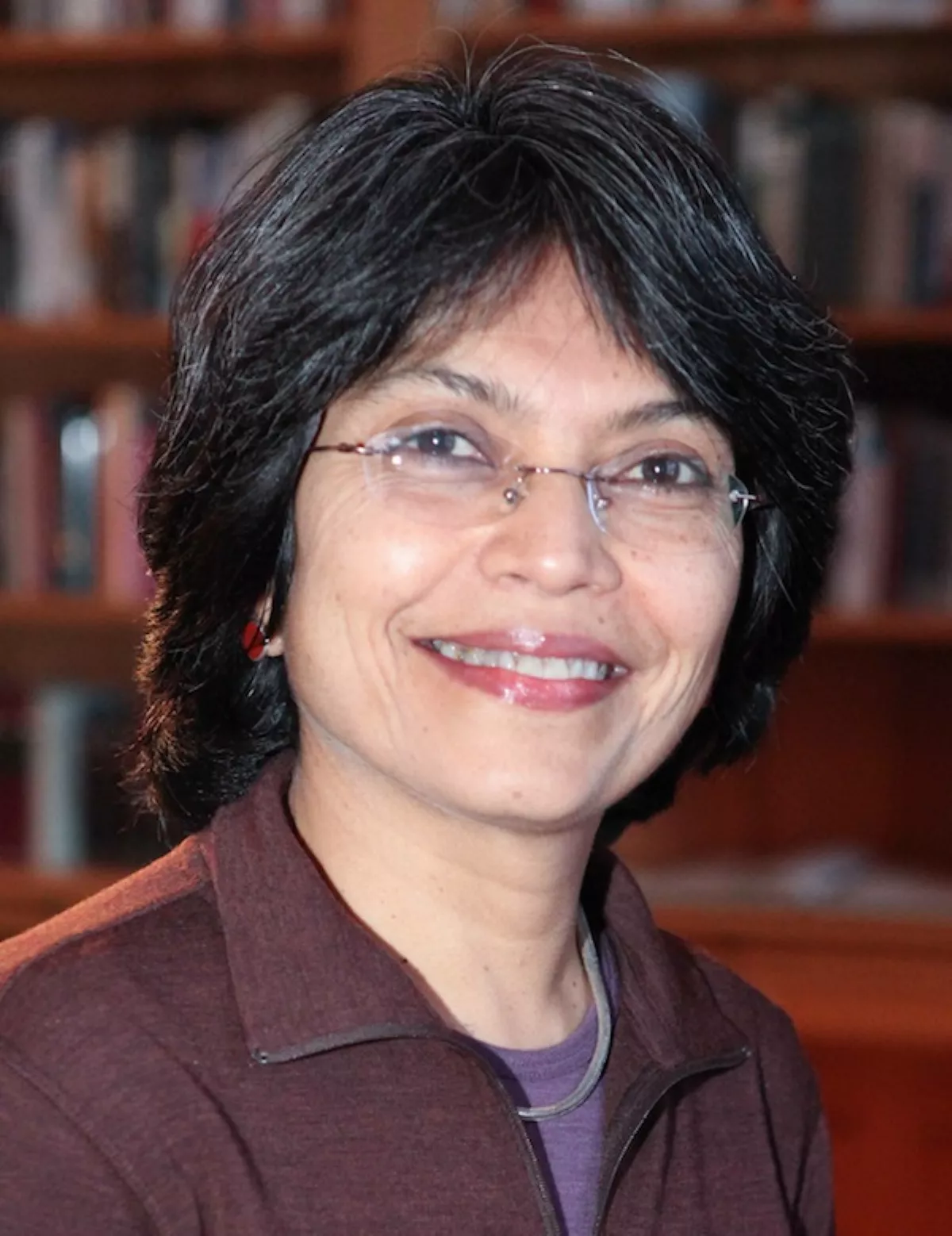 1.
1. Saba Mahmood was professor of anthropology at the University of California, Berkeley.

 1.
1. Saba Mahmood was professor of anthropology at the University of California, Berkeley.
Saba Mahmood was born on February 3,1961, in Quetta, Pakistan, where her father was a policeman.
Saba Mahmood received her PhD in anthropology from Stanford University in 1998.
Saba Mahmood held master's degrees in Political Science, Architecture, and Urban Planning.
Saba Mahmood married Charles Hirschkind, an anthropology professor at UC Berkeley, in 2003.
Saba Mahmood held visiting appointments at the American Academy in Berlin, Center for Advanced Study in the Behavioral Sciences, and Leiden University.
Saba Mahmood taught at the School of Criticism and Theory at Cornell University, the Venice School of Human Rights, and the Institute of Global Law and Policy.
Saba Mahmood was a co-convener of the Summer Seminar in Experimental Critical Theory at the University of California Humanities Research Institute, Irvine.
Saba Mahmood served on the editorial boards of Representations, Anthropology Today, L'Homme, Comparative Studies of South Asia, Africa and the Middle East, and Journal of the American Academy of Religion.
Saba Mahmood was the recipient of numerous awards and fellowships, including an honorary doctorate from Uppsala University, the Carnegie Corporation's scholar of Islam award, the Frederick Burkhardt fellowship from the American Council of Learned Societies, and grants from the Henry Luce Foundation, the American Council of Learned Societies, and Harvard Academy of International and Area Studies.
Saba Mahmood's book Politics of Piety: The Islamic Revival and the Feminist Subject received the 2005 Victoria Schuck Award from the American Political Science Association and was an honorable mention for the 2005 Albert Hourani Book Award from the Middle East Studies Association.
Saba Mahmood's work has been translated into Arabic, French, Persian, Portuguese, Spanish, Turkish, and Polish.
Saba Mahmood's work has carried profound implications for the philosophical and empirical study of sovereignty, subjectivity and feminist agency, and has led many scholars to reconsider dominant approaches to the law and the modern state, particularly with respect to how religious subjects and groups are governed and defined.
In Politics of Piety: the Islamic Revival and the Feminist Subject, Saba Mahmood offers an ethnography of the women's piety movement in Cairo, Egypt, which is part of a larger Egyptian movement of Islamic political revival and reform.
Saba Mahmood wrote that her critics "ignore the fact that I was not interested in delivering judgments on what counts as a feminist versus an anti-feminist practice".
Saba Mahmood argued that an analysis that leads with a moral evaluation of the women's movement does not yield a better understanding of it.
Saba Mahmood pointed out that geopolitical tension, instead of a consensus across different cultures, shaped the course of religious freedom.
Saba Mahmood then pointed out that religious freedom is not an idea that merely promotes inclusion, rather it is coupled with the struggles between regional powers.
Saba Mahmood further questioned whether the advocacy of religious freedom, as well as other forms of human right, can be isolated from seeking geopolitical advantages.
Saba Mahmood concludes that "political secularism is the modern state's sovereign power to reorganize substantive features of religious life, stipulating what religion is or ought to be, assigning its proper content, and disseminating concomitant subjectivities, ethical frameworks, and quotidian practices".
Saba Mahmood died from pancreatic cancer on March 10,2018, in Berkeley, California.
Saba Mahmood cultivated with joyous attention her relationships with family and friends.
Saba Mahmood mentored her students with remarkable care and intensity, demanding their best work, listening, responding with a sharp generosity, coming alive in thought, and soliciting others to do the same.
Saba Mahmood is survived by her husband, Charles Hirschkind, her son, Nameer Hirschkind.